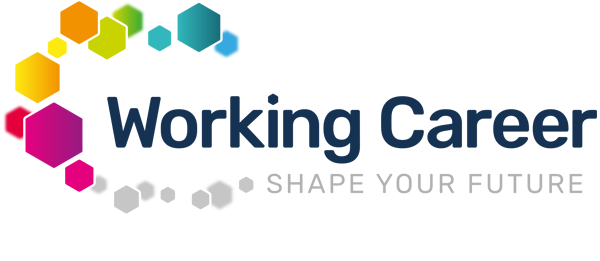Get Ahead Before the Year Ends: The 10 Skills You’ll Need for 2026
Introduction: Get Ahead Before the Year Ends
As we move into the final months of 2025, it’s the perfect time to take stock of where you are — and where you want to go next.
The world of work continues to evolve rapidly, shaped by AI, automation, hybrid working, and shifting expectations around what we value in our careers.
LinkedIn’s 2025 data shows that demand is rising for skills that combine human strengths with digital fluency — and these trends are set to accelerate into 2026.
As someone currently studying a short course in Artificial Intelligence at the University of Oxford, I’ve been particularly interested in how AI is reshaping the skills we’ll all need for the future. Recent research from Oxford Saïd Business School echoes what I’ve seen first-hand — that the most successful professionals will combine technical awareness with deeply human capabilities.
In a discussion between Kenneth Cukier, Michael Osborne, and Carl Frey, Oxford experts agreed that while data literacy and algorithmic understanding will be essential, our enduring advantage lies in creativity, social intelligence, and cultural awareness — the human traits technology can’t easily replicate (University of Oxford, 2024).
These two abilities — social intelligence and cultural awareness — form the foundation for almost every other future skill. They shape how we collaborate, lead, and adapt in a global, digital workplace. As you read through the ten must-have skills below, you’ll notice how they weave through everything from communication and creativity to adaptability and emotional intelligence.
10 Must-Have Skills to Build Before 2026
1. AI Literacy
AI literacy means understanding what artificial intelligence can (and can’t) do — and using it confidently to make your work smarter. It’s no longer a “tech” skill; it’s a core professional one.
How to build it:
Take short courses on LinkedIn Learning or Coursera’s AI for Everyone.
Experiment with ChatGPT, Canva Magic Write, or Microsoft Copilot.
Follow MIT Technology Review for emerging trends.
📘 Download: AI Prompts to Accelerate Your Career — my free guide packed with ready-to-use prompts to help you make AI your personal career assistant.
Or subscribe to my AI and Your Career Blog Series for more practical ways to integrate AI into your work.
2. Adaptability and Flexibility
The only constant in modern careers is change. In 2026, your ability to pivot, stay open-minded, and reframe challenges as opportunities will remain a key differentiator.
Try this:
Step into a project or task slightly outside your comfort zone.
Practise the growth-mindset principles from Carol Dweck’s work (Harvard Business Review, 2016).
Reflect weekly on what recent changes have taught you — and what skills helped you navigate them.
3. Communication and Influence
As hybrid working becomes the norm, strong communication skills — both written and spoken — are essential. Clarity, confidence, and empathy build trust across teams and time zones.
How to develop it:
Watch TED Talks by Nancy Duarte or Amy Cuddy.
Practise summarising complex ideas into three key points.
(Social intelligence strengthens this skill — helping you read people’s cues, adapt your tone, and communicate with emotional awareness.)
4. Stakeholder Management
2026 will reward those who can build strong, positive relationships — even in complex organisational structures. It’s about empathy, influence, and collaboration, not control.
Try this:
Map your key stakeholders.
Take a negotiation skills course or read about influence models.
Ask for feedback after meetings: “Was that helpful? Anything I could do differently next time?”
(Social intelligence and cultural awareness are essential here — they allow you to understand different motivations and navigate diverse perspectives.)
5. Innovative and Creative Thinking
Automation handles logic; humans bring imagination. Creativity is one of the “bottlenecks to automation” identified by Oxford researchers Osborne and Frey — a uniquely human strength that remains difficult for algorithms to replicate (World Economic Forum, 2023; University of Oxford, 2024).
How to develop it:
Read outside your field — inspiration often comes from elsewhere.
Engage in creative hobbies like writing or design to stretch your problem-solving muscles.
(Cultural awareness fuels creativity — the more perspectives you understand, the more original your ideas become.)
6. Process Optimisation
Efficiency is a hidden superpower. Finding smarter ways to work makes you indispensable.
Practical ideas:
Once a month, ask: “What’s one thing slowing me down — and how can I simplify it?”
7. Conflict Resolution and Calm Communication
With remote work, tone and timing can easily be misunderstood. Handling disagreements constructively is a career-defining skill.
How to strengthen it:
Practise active listening.
Use the SBI framework (Situation – Behaviour – Impact) for feedback.
Take a conflict resolution course.
(Strong social intelligence helps you manage conflict with empathy and fairness, rather than reactivity.)
8. Emotional Intelligence (EQ)
EQ is the foundation for all interpersonal effectiveness — leadership, teamwork, and resilience (Goleman, 2004). In a world of AI, emotional intelligence is what keeps work human.
Ways to build it:
Keep a daily journal of what energised or frustrated you — and why.
Read Daniel Goleman’s “What Makes a Leader” (Harvard Business Review).
Work with a career coach to gain deeper self-awareness and perspective.
(EQ, social intelligence, and cultural awareness together form the human foundation of effective leadership.)
9. Digital Collaboration
The ability to collaborate seamlessly online will remain vital through 2026.
How to build it:
Learn Microsoft Teams, Slack, Miro, or Google Workspace.
Summarise meetings, capture actions, and follow up clearly.
Ask a colleague for feedback on your virtual presence.
(Cultural awareness is key to global collaboration — understanding tone, timing, and communication norms across borders.)
10. Decision-Making and Risk Awareness
As workplaces grow more complex, clear thinking and good judgement matter more than ever.
How to develop it:
Use SWOT analysis or “best/worst/most likely” scenarios.
Learn about cognitive bias.
Reflect on past decisions — what information did ou rely on, and what would you change next time?
(Cultural awareness enhances judgement by helping you see beyond your own perspective.)
How Social Intelligence and Cultural Awareness Tie It All Together
When Oxford researchers describe social intelligence and cultural awareness as essential “human differentiators” in the age of AI, they’re really talking about the connective tissue that makes all the other skills effective.
Social intelligence enhances communication, stakeholder management, emotional intelligence, and conflict resolution — helping you “read the room” and respond with empathy.
Cultural awareness strengthens adaptability, creativity, and digital collaboration — ensuring your ideas are inclusive and globally relevant.
Together, these skills make you not just capable, but wise in how you apply your knowledge and technology.
Final Thoughts
The professionals who will thrive in 2026 aren’t necessarily those with the most technical expertise — but those who stay curious, adaptable, and emotionally aware.
Use the final weeks of 2025 to invest in the skills that will carry you confidently into the new year and beyond.
About Diana Dawson
Diana Dawson is a Coaching Psychologist and Accredited Master Coach with the Association for Coaching.
She is the founder of Working Career — a coaching practice dedicated to helping professionals and executives build clarity, confidence, and resilience at work.
With over 20 years’ experience in career, executive, and wellbeing coaching, Diana combines psychology, evidence-based coaching, and practical tools to help clients move from stuck to fulfilled in their careers.
When she’s not coaching, you’ll often find Diana outdoors — swimming in open water, riding her horse, or exploring Scotland’s coastlines — pursuits that reflect the same resilience, focus, and balance she helps her clients develop in their professional lives.

